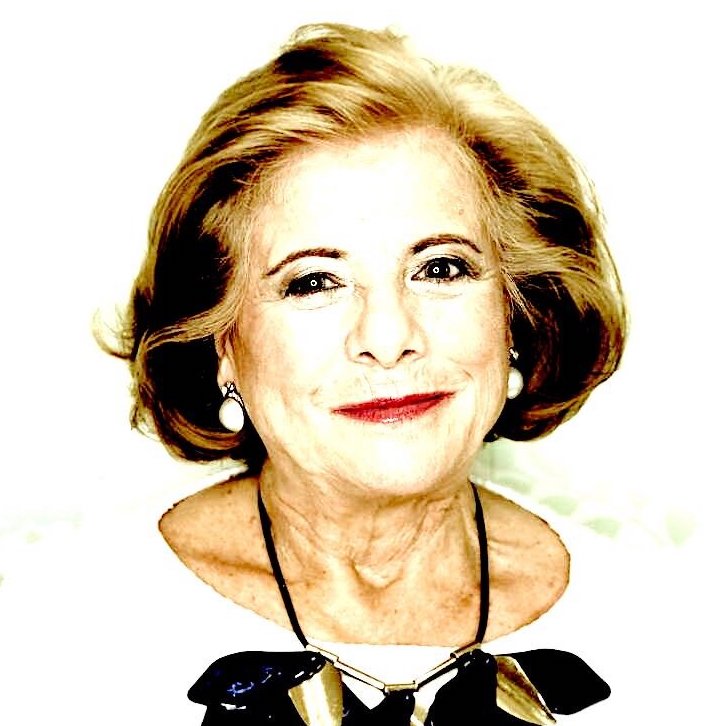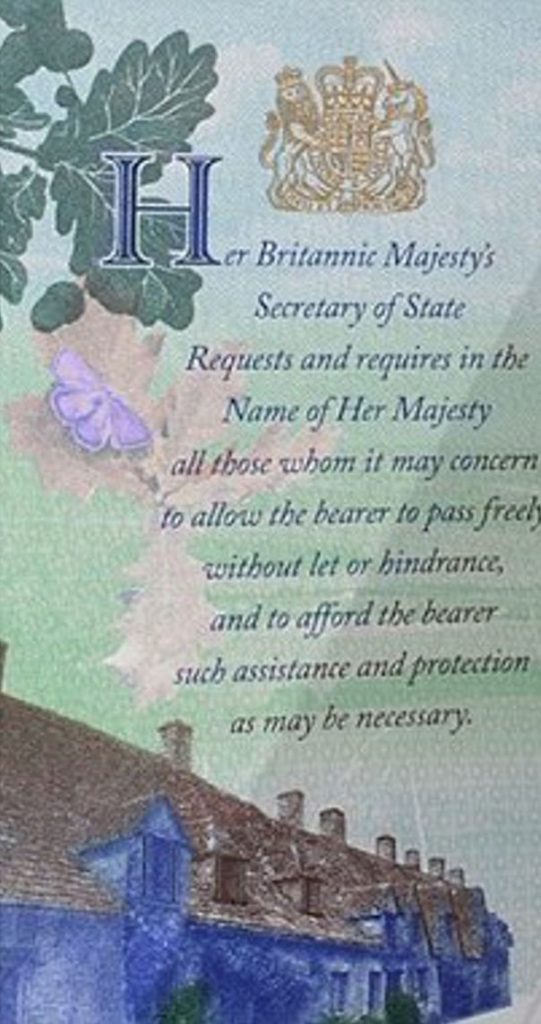FHB Interview with THE LADY BRENNAN, Trustee of the British Hispanic Foundation
A trip ahead of the usual for young people around her, took Pilar Brennan to the United Kingdom from where she has lived an intense altruistic life between two countries. Decades later, she encourages the British Hispanic Foundation to offer new paradigms to young people, after the epidemic the whole world suffers.
ISABEL AIZPÚN
Madrid, December 2020
In the 1960s, she left Teruel for London and began to learn what it was like to live between Britain and Spain by giving Spanish language classes and arriving at the University of Manchester to study Modern Languages … And this is where the history of this interview begins, isn’t that right?
For me everything was a novelty. We must remember that I had lived in a small city, Teruel, and my only trip abroad had been to Ávila to visit the Institution of Padre Poveda, founder of the Teresianas, where I studied until the Upper Baccalaureate and then Magisterium, in the city of Teruel. It was the years of Franco and I did not know another world. I settled in Manchester with my brother, my “chaperon”, who had just finished his career at the University of Salamanca, because a young woman alone in the world did not fit with the mentality of Teruel.
And you found a very different world …
The first thing I noticed was respect, tolerance and honesty. One would go to buy the newspaper and leave the money in a little box on the street … Those were difficult times … There was a lot of emigration from all over the world, but the economic situation in Spain and the currency exchange were so favorable for the Spanish that, in the city of Manchester, there were many Spaniards. Remember that I am talking about the 60s. In order to help them, we created the Pilar Spanish Center, in the headquarters of the Salford Cathedral, whose rooms we used and where we met every Sunday giving English classes to Spanish people and Spanish classes to British university classmates. We looked for employment for those who needed it and we arranged documents with the Liverpool consulate whose consul, Mr. Oyarzun always gave us his support.
After finishing university, we asked the Spanish government to send a chaplain and help us with a place to meet and everything was achieved; It was a very beautiful job, and I think it was very humble to help our compatriots at all times.
In another vein, I was used to walking around the Plaza del Torico in Teruel, up and down, and seeing people and boys out of the corner of their eye … in England as soon as I arrived they invited me to take a walk … Much like in Teruel, I dressed up, I put on my makeup, I put on my high heels and we went for a walk hoping to see the people, the bars, the boys ……it was very exciting!
We walked for at least half an hour under the sun and drizzle without seeing anyone and I became more and more excited to see the “square”. We finally reached a street and my friend knocked on the door and I thought that, according to English custom, we would be invited to have tea …
I was disappointed when I recognized the house where I was staying!
From then on I never wore the high heels that had expired after that walk.
Many things will have expired in these decades between the United Kingdom and Spain, what changes have you seen in the relationship between Spaniards and Britons, if there are any?
Today’s Spaniards are no longer the economic emigrants of the 1960s. Many come for tourism or to work in the Spanish multinationals that have taken root in this country. Most speak English or at least know how to defend themselves in English. They are more sophisticated and have already seen other worlds.
It seems that you develop an inexhaustible social and cultural activity: you belong to the Board of Trustees of the British Hispanic Foundation; to the British Spanish Society; founded the Spanish Center in Manchester; leaded the project Sponsor an olive tree, from Teruel; founded and chaired the Association of Friends of Teruel in Madrid; you chaired the Anglo-Latin American Foundation; you have been President of MacMillan Cancer Relief for the House of Lords… What legacy do you want to leave with it all?
I consider myself a lucky person and my motto has always been to try to help others as much as possible. That is why I have worked for the charities you mentioned.
Just a few days ago we received the “Institute of engineering and technology award 2020” in the category of “Best inclusion and diversity impact” from Oldalone UK, which cares for the elderly in Latin America, competing with British Telecom and Emerson. A project to help the Ibero-American elderly population to access the digital world of the 21st century.
In relation to the empowerment of women through garbage recycling, I have worked and lectured in Cotonou (Benin), in Seoul (South Korea) and in Damascus (Syria); also in Manila (Philippines) working with the wife of President Ramos in the removal of garbage from the Pásig River.
Women in Benin recycled street garbage with the help of young people who sometimes committed minor crimes; they stole in order to eat. These young people built their homes with bricks that they made with recycled cardboard, smeared with mud and baked in the sun; and they grew their vegetables to eat with the materials and water that they recycled at home.
Today recycling has become a major industry.
Working for the Raj Loomba Foundation, educating the children of poor widows in India, where there are almost 30 million widows, I have been to India several times and visited the homes of these poor widows. One of them prepared 4,000 paper bags so that the carts could sell the peanuts on the street … and for her work they paid her $1 and when I asked her why they did not sell the bags directly instead of through an intermediary, her answer was that she couldn’t let men into her house because she had daughters and it would be counterproductive when they wanted to get married, it would be frowned upon.
By the way, why do you have to sponsor an olive tree in Teruel?
The “Sponsor an olive tree” project is revolutionary. We are trying to reverse depopulated Spain by sponsoring abandoned centenary olive trees that provided jobs for young people who left the countryside for the city in search of opportunities. Now they return to their roots with a decent salary and, in the case of Sponsor an olive tree in Oliete (Teruel), we have opened the school and provide accommodation in the abandoned houses. In addition, we have expanded the oil mill and, as if this were not enough, we produce oil of such good quality that it is being sponsored by famous chefs in Spain.
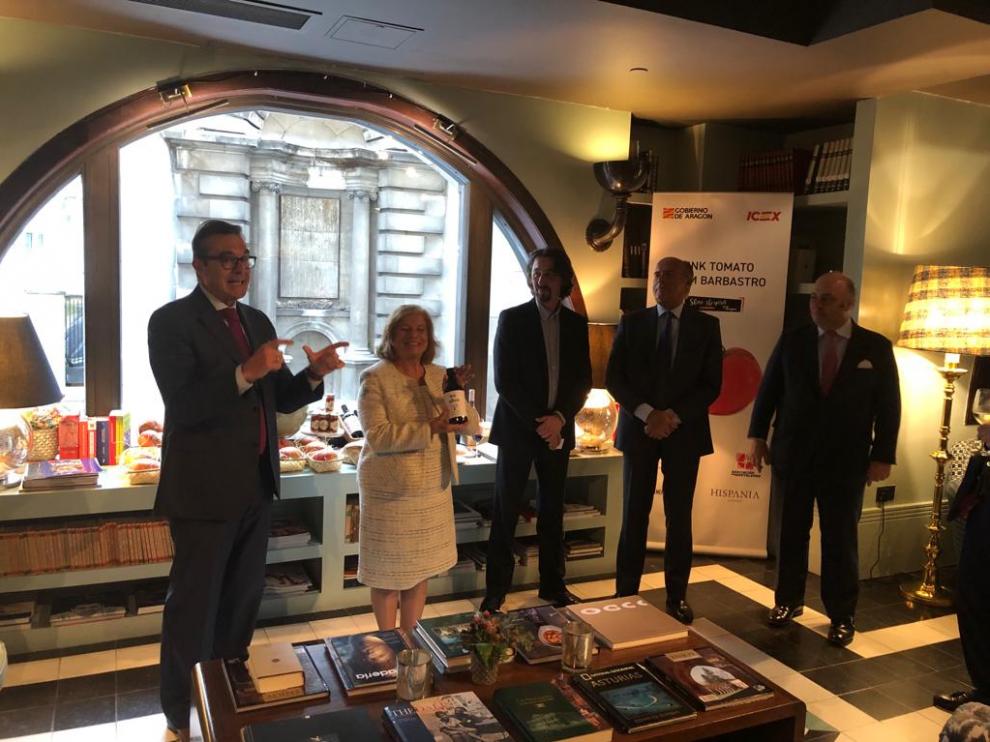
Hispania restaurant, London, October 2019
presenting “Sponsor an olive tree”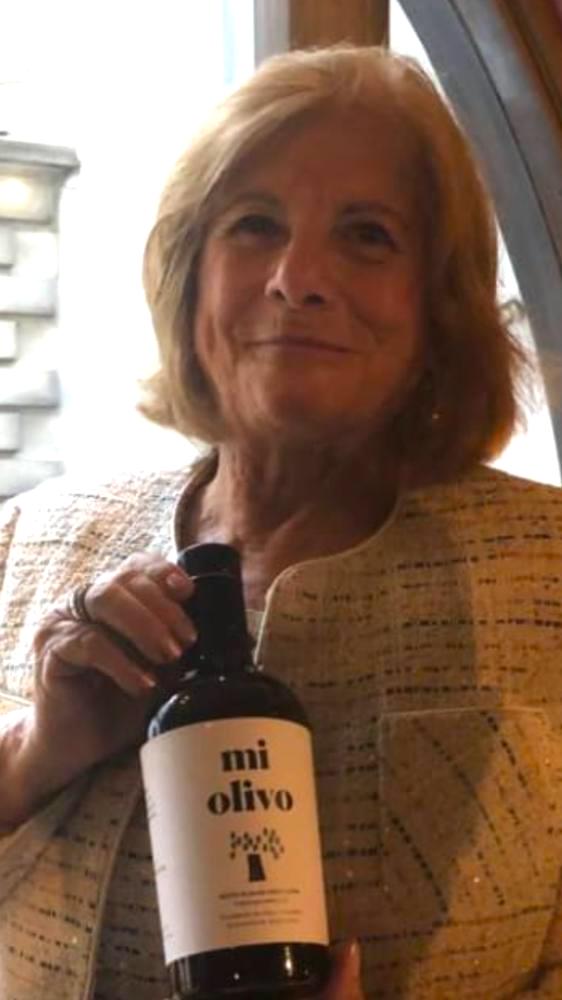
What remains of your teaching vocation from when you studied Teaching?
Frankly, I am not an academic. I studied Teaching because it was a shorter career than the university in Spain. I wanted a profession that would help me a lot because I was able to teach Spanish at a school and also take an English exam. It must be taken into consideration that in those days, the most studied language in Spain was French, but English was a requirement to be able to access the University of Manchester and to study BA honors in languages. Latin was also compulsory and I had done my Baccalaureate in Science… I will never forget my first Latin class translating an absolute ablative from Latin into English… The rest is history.
For 15 years I taught Spanish at the University of Manchester, until I decided to quit teaching and dedicate myself to working as an interpreter and I have been fortunate to work with very interesting institutions such as the British Ministry of Defense and with personalities such as Margaret Thatcher or José María Aznar, two days before the elections were held after the Atocha attacks.
From the University of Manchester we were able to add value to the European Community by reducing the costs of the translations that took place, with our work in the “Machine Translation” department using a very synthesized and simple translation procedure that allowed the computer to translate to all the required languages. Due to my involvement in the “Machine Translation” work, Macmillan Press asked me to participate in a compilation project for a Spanish-English dictionary for high school students.
I have traveled all over the world and have learned a lot about everything.
You are one of the few Spaniards united to an English lord; You have already celebrated your golden wedding anniversary, you have created a great family … is it especially gratifying to have achieved this with two such disparate backgrounds?
Until recently, we were three Spanish women married to a member of the House of Lords: Elena Ochoa, married to Norman Foster; Catalina Garrigues, married to Tristan Garel-Jones, who sadly passed away this year; and me, married to Daniel Brennan.
I met my husband during the first week of my arrival at the University. As I mentioned before, the currency exchange was an important factor for emigration: 268 pesetas for 1 pound, but it did not favor me because I had to pay in pounds and my parents told me: do not waste your time or our money. So I enrolled in debating society to improve my English, and the president of the society was my husband. We have grown up together. As Locke, the philosopher said, we started with a clean slate and together we have created a wonderful family with four children of whom we are very proud.
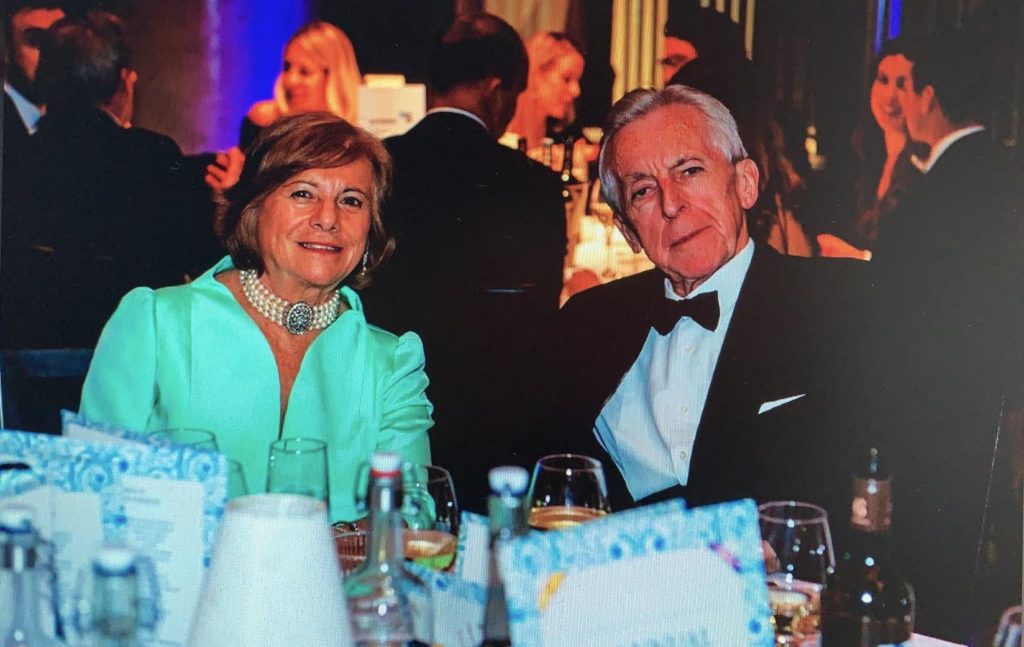
Lord and Lady Brennan, at a dinner on the occasion of the last official visit of the Kings of Spain to the United Kingdom in 2017
During the pandemic we have taken refuge in our house in Bibury, in the Cotswolds, one of the most beautiful villages in England, well known for Arlington Row, a row of very old houses.
In the course of a conference with the American / British institute in Oxfordshire we met another British man married to a Spanish woman and we invited them to a weekend in our house. When he saw this row of houses he was amazed by their beauty, so his company, in charge of the printing of British passports, placed a photograph of these houses on the first page of the passports. The result was the arrival of the British people to the town on weekends.
This is in addition to all the Japanese who keep coming since their emperor Hirohito wrote an article in the Japanese press praising Bibury’s beauty.
From a privileged observer position, what assessment can you make of current affairs in both countries?una posición de observadora privilegiada ¿Qué valoración puede hacer de la actualidad en ambos países?
We have to take Brexit into account. The UK is leaving the EU at the end of the year. I do not agree with the result of the referendum, but it was the country’s democratic decision and it must be accepted. Hopefully we can get an agreement that helps Spain and the UK. Both countries share traditions, culture … both were great empires and both countries have languages, English and Spanish, spoken worldwide. After Brexit, we will have to continue cooperating on a social, economic and political level. And how can we forget football, the favorite sport in both countries; although in Spain it is “a tad” better.
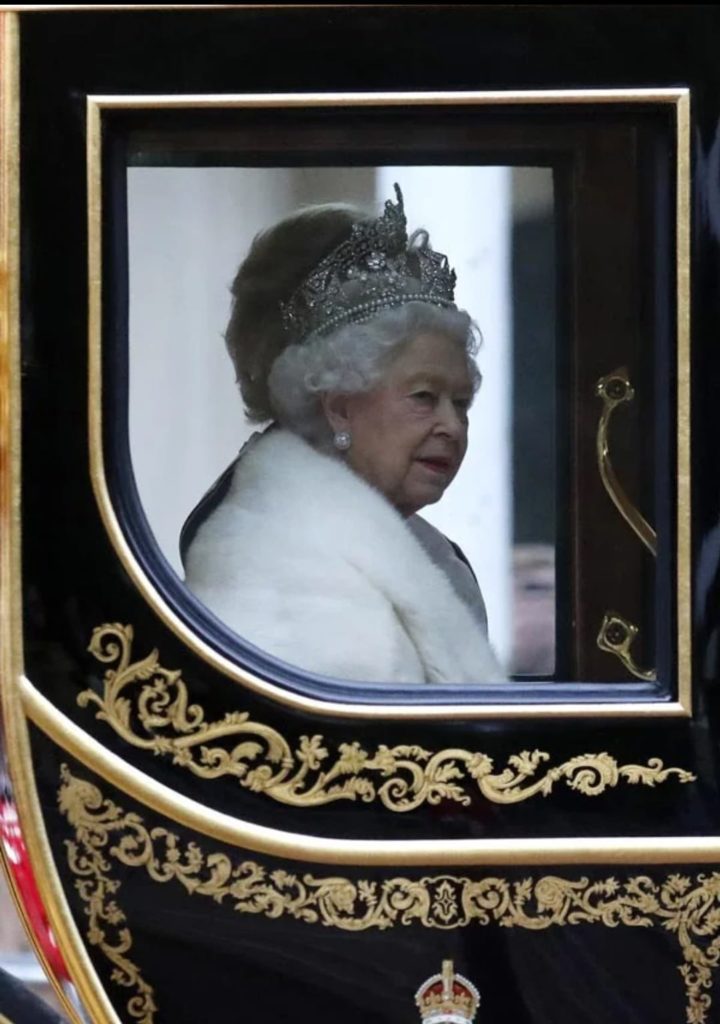
Queen Elizabeth II
arriving at the Palace of Westminster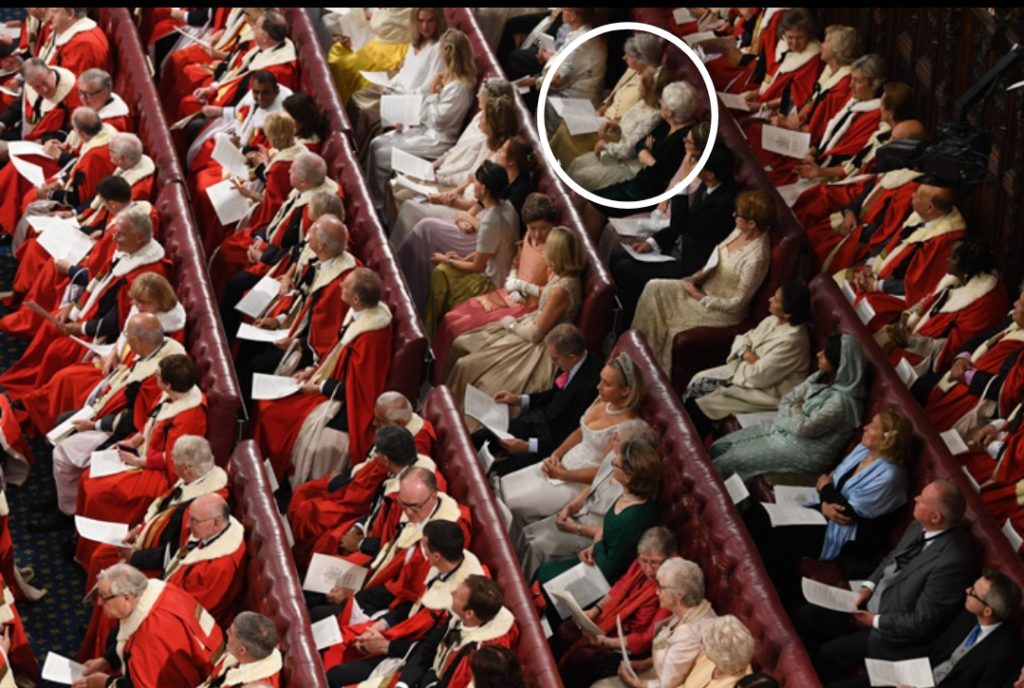
Interior of the Palace during the ceremony inauguration of Parliament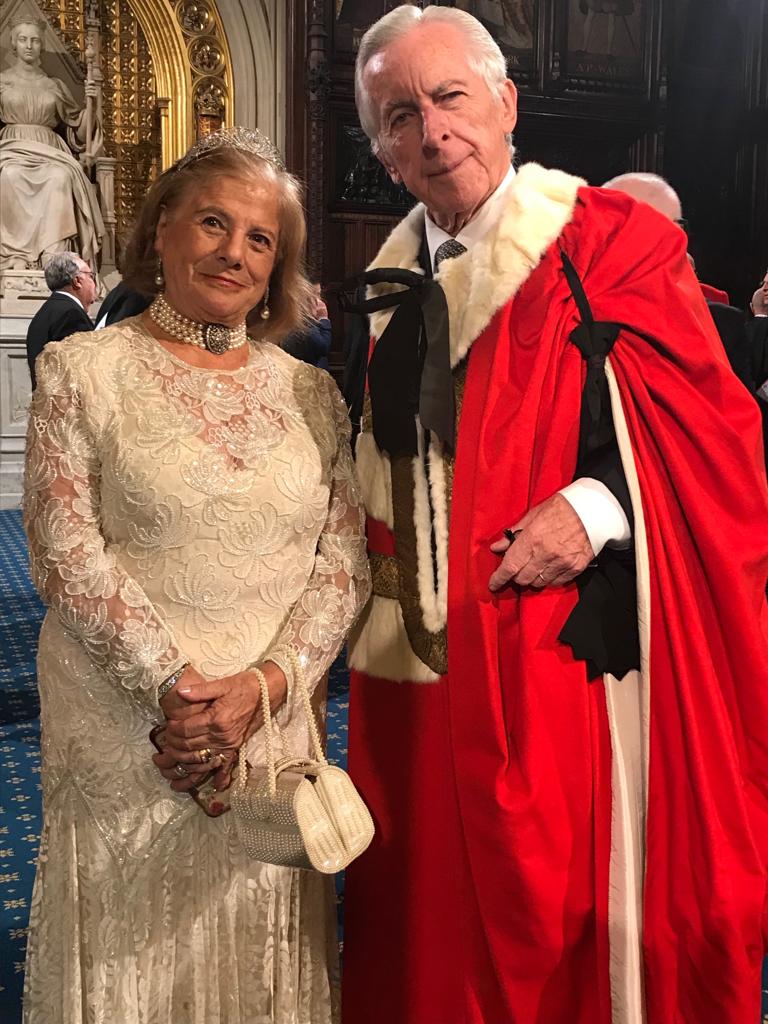
Lord and Lady Brennan at the solemn opening ceremony of the British Parliament, October 2019
And in accordance with that current situation, why should the British Hispanic Foundation stand out from now on?
The role of FHB is more important than ever today, as the pandemic is taking away much of what we have known and enjoyed thus far. We must help young people with new cultural, social and, above all, human paradigms.
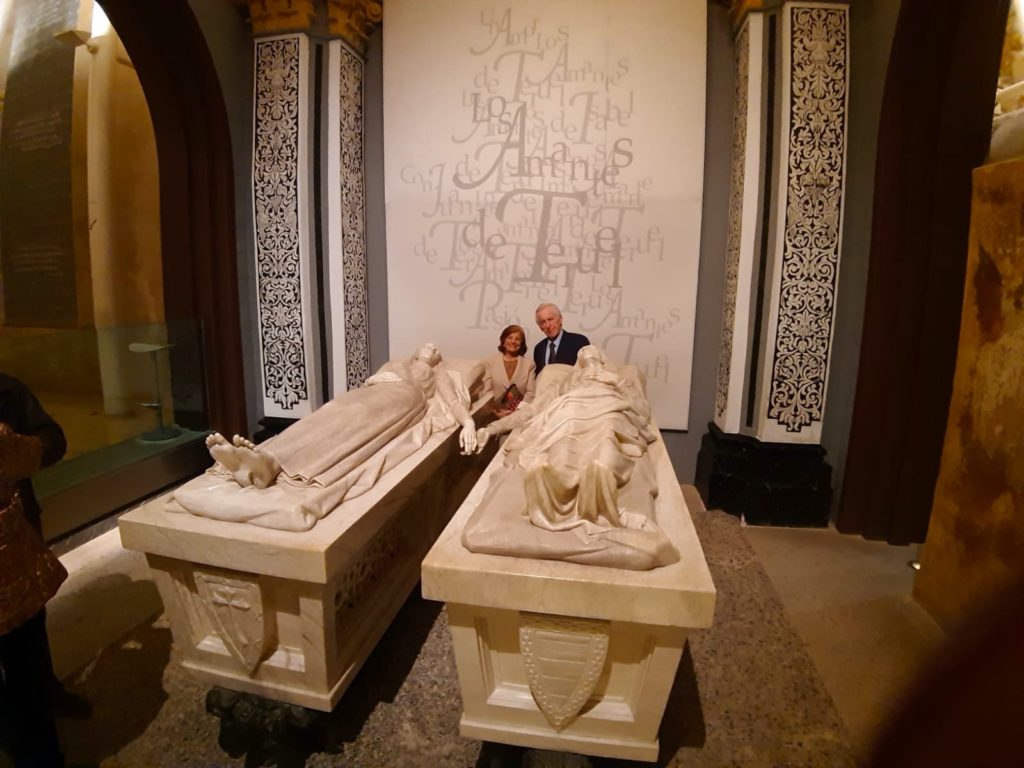
Teruel, February 2019
Madrid, January 2020
The Lady Brennan has received, among other distinctions, the Official Cross of the Order of Isabel la Católica, the Medal of Los Amantes de Teruel and the title of Dame of the Sacred Military Constantinian Order of Saint George.

